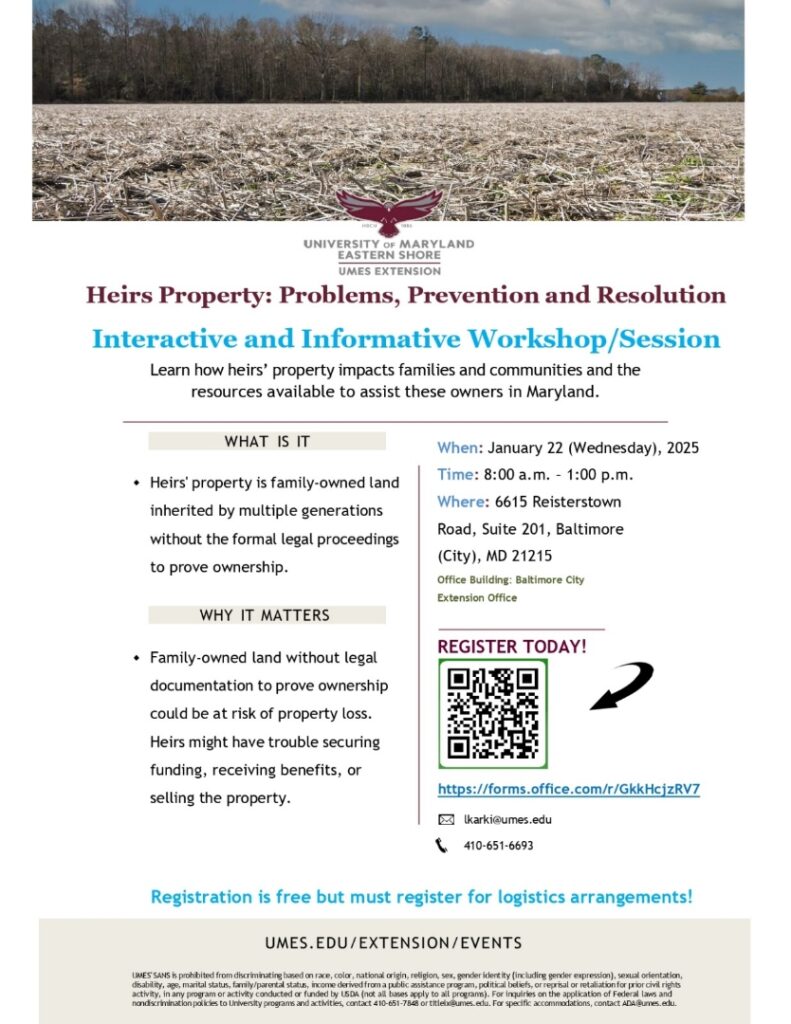
Community-supported agriculture (CSA) is a growing business model for farms in Maryland and nationally. In a typical CSA, members pledge to help cover the anticipated costs of the farm’s production for part of or the entire season. In return the members receive a portion of the farm’s crops over the designated time period of the CSA contract. The CSA model allows farmers to get needed upfront capital at the start of the growing season. At the same time, the model allows members access to fresh locally produced fruits, herbs, meats, or vegetables.
The CSA model is not without risks. Underlying the relationship is the agreement that the farmer and the members share risks. There is always a risk of commodity (including crop, livestock, and egg) failure due to drought, disease, etc. and members not receiving the anticipated share. The Maryland Department of Agriculture often gets calls from CSA members who do not understand the inherent risks associated with agriculture and are disappointed when farmers are unable to deliver the CSA members’ anticipated shares.
With that in mind, the Department of Agricultural and Resource Economics (AREC) and Agriculture Law Education Initiative (ALEI) partnered with Maryland Department of Agriculture and Maryland Farm Bureau to develop materials to better aid farmers in developing their own contracts. These materials have been developed with a Federal State Marketing Improvement Program grant through USDA’s Agricultural Marketing Service
*This page and the materials on this page should not be construed as legal advice or creating an attorney-client relationship.
CSA Contract Guide
- Understanding A Community Supported Agriculture Agreement: What Should Be Included In A Good CSA Membership Agreement? by Paul Goeringer, Ashley Newhall, Sarah Everhart, and Wele Elangwe (EB-424, 2015).
Pricing a CSA Share
- Determining Prices for CSA Share Boxes by Craig Chase (Iowa State University, 2007) via FarmAnswers.org
CSA Model Contract
This model CSA contract is based on our thoughts of what a good CSA contract should contain, and it should be used as a tool to developing individual CSA contracts. Feel free to modify the agreement as needed to fit your operation, but remember to have an attorney review any changes.
- CSA Model Contract Form (available as a pdf and a word doc).
CSA Workshop Presentations
In early 2015, representatives from AREC, ALEI, and MDA hosted workshops and a webinar series on CSA issues. Below are the presentations used in those workshops and webinars.
- Ashley Newhall, CSA Contracts: What Not To Do (2015).
- Paul Goeringer, Developing a Better CSA Contract (2015).
- Sarah Everhart, CSA Labor Issues (2015).
- Steve Connelly, Crop Insurance for CSA Operators (2015). For additional information on crop insurance programs, please see the AREC Crop Insurance’s Publications page.
CSA Videos
- Understanding CSA in Maryland, Mayhah R. Suri (April 11, 2016).
- CSA Contracting Issues, Ashley Newhall and Paul Goeringer (March 31, 2015).
- CSA Labor Issues, Sarah Everhart (April 14, 2015).
- Crop Insurance Issues, Paul Goeringer (April 14, 2015).
This Research is based on grant from:










